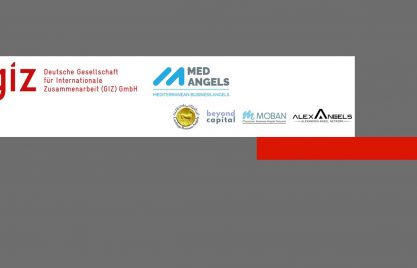In the spirit of “Exploring Diversity, Promoting Inclusion,” the 2017 AFI Global Policy Forum reminded policymakers from all around the globe of the existence of a vast diversity of societies, financial means, and needs of people in Arab countries and beyond. Data plays a crucial role in ‘Exploring’ this diversity to make invisible markets visible and bring smart financial inclusion policies to life.
The 9th AFI Global Policy Forum was the first GPF in the MENA region. Resembling the vast diversity of the  Arab world, the forum was carried out under the theme “Exploring Diversity, Promoting Inclusion”. Reflecting the spirit of ‘Exploring’, the key panel on “Financial Inclusion Data to Make Invisible Markets Visible” discussed the role of data and measurement in evidence-based policymaking for financial inclusion.
Arab world, the forum was carried out under the theme “Exploring Diversity, Promoting Inclusion”. Reflecting the spirit of ‘Exploring’, the key panel on “Financial Inclusion Data to Make Invisible Markets Visible” discussed the role of data and measurement in evidence-based policymaking for financial inclusion.
Good data resources help to better understand the state of affairs and design effective financial sector reforms, as data challenges status quo assumptions and reduces the chance of groupthink and biases. Especially while preparing and implementing national strategies for achieving high levels of financial inclusion as a facilitating factor in sustainable development, data can support, amongst others, in:
- Evidence-based policy formulation: Data supports the identification of needs of financial consumers and barriers on the side of providers as well as the prioritization and sequencing of well-focused, relevant reforms.
- Product innovation: Data is valuable for financial service providers in developing new products in that it points to potential business opportunities.
- Target setting: Data enables to set national targets and measure progress along the way.
Among the financial policymakers and regulators in the region, the Central Bank of Jordan, for example, embarked on a multi-stakeholder policy process for preparing the country’s financial inclusion strategy. It aims to enhance formal financial inclusion, mainly among the women, youth, refugees, and low-income segments and MSMEs, to unleash economic and social development potentials. Involved stakeholders thus needed a deeper understanding of the present state of financial inclusion, the regulatory, physical and commercial barriers thereto and the gender, socio-economic, demographic and geographic usage specifics and needs.
A country-wide diagnostic of financial inclusion was conducted under the supervision of the CBJ and GIZ to guide the strategy preparation by means of evidence. The study, amongst others, revealed:
- Imbalances in financial inclusion across segments and demographics: Women (27.2%) are much less likely than men (37.6%) to have accounts at financial institutions. Similarly, young adults (aged 18-24; 23.6%) are less likely to have an account than people aged 25+ (38.6%). Members of the low-income group have far fewer accounts than those with high-paying jobs (bottom 40% vs. top 60% of income; 19.3% and 43.7%, respectively).
- Growth potential for borrowing from formal financial institutions: More people borrow from informal sources, such as family, friends and employers, than from formal financial institutions (13.3% vs. 9.9%). Overall, 15.9% of adults expressed they have an immediate need for a loan.
- Opportunities for online payment segment growth: Even though only 1.8% of people actually do online payments, a total of 18.2% indicated that they might need online payments in the future or that they already have a present need for them. (The authors will share further insights as they move forward.)
Data makes the invisible visible. It allows to explore and better understand the dimensions of financial access, usage and quality across diverse segments with different needs; to respond accordingly from policy and market level. Quests like these, more so into needs, are essential, as the panel discussions revealed, because “usage is necessary for financial inclusion outcomes and impact”.
By Atilla Kaiser-Yuecel and Armin Satzger
Any opinion expressed here are those of the authors and do not necessarily reflect the official opinion of the CBJ, the EU or BMZ.



